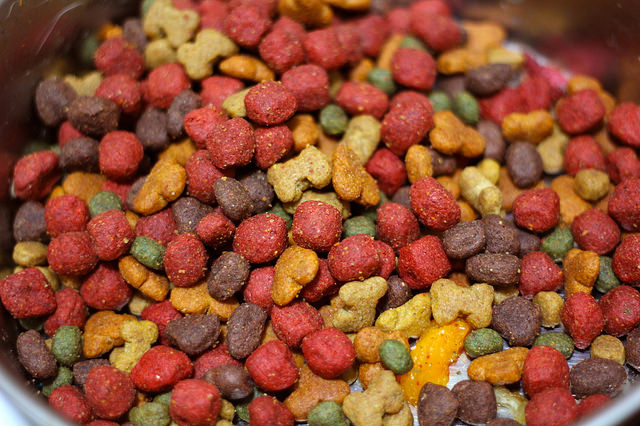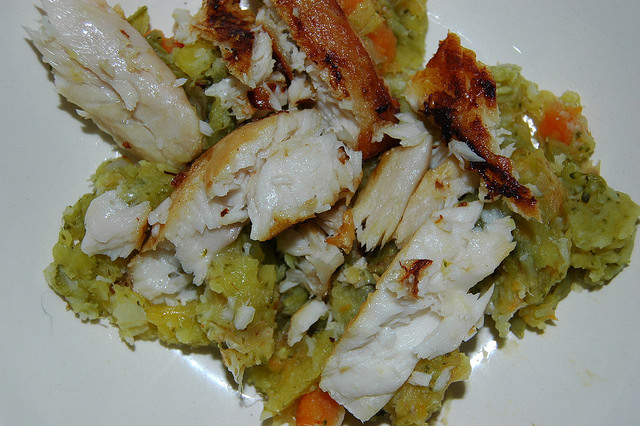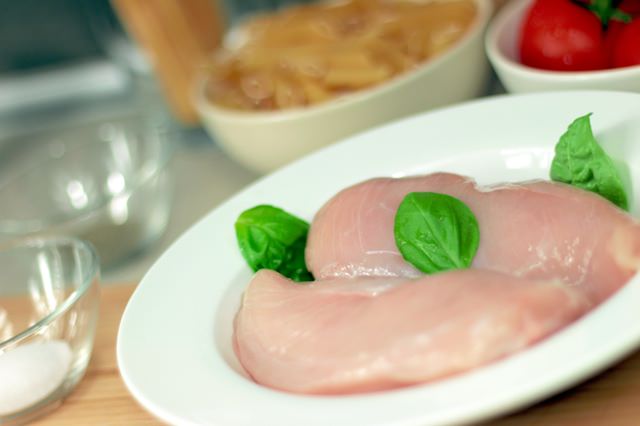There are so many different ways to feed your dog. How do you know what’s best?
There is no easy answer. The best thing to do is to check the pros and cons of each style of dog food and decide what works best for you and your pooch. Here are some advantages and disadvantages of each. This is only an introduction; you should always do your research and talk to your vet before changing your dog’s diet.
Canned Dog Foods

Pros
-Highly palatable, so even the pickiest eaters usually devour their food.
-Good for dogs that are missing teeth or recovering from an illness.
-Excellent choice for dogs with limited kidney function.
-Has a long shelf life (one to three years, depending on the brand).
Cons
-Can be prone to contamination.
-More expensive than dry food.
-Dogs that only eat canned dog food require more frequent dental cleanings on average.
-Can cause loose stools in some dogs.
Related: 9 Best Puppy Dog Foods
Dry Dog Foods

Pros
-Provides balanced nutrition.
-Supplies necessary proteins, carbohydrates, vitamins, fiber, and minerals.
-May be better for dental health than canned or soft food.
-Convenient.
Cons
-Lower-quality foods may incorporate meat by-products or meals instead of wholesome meat.
-May include fillers that can be irritating to a dog’s digestive tract.
-Dogs are more likely to develop dry, itchy skin from dry food, which can be caused by dehydration due to low moisture content, allergies to soy, corn, wheat, or grains, or reactions to preservatives.
-There’s always the possibility of accidental contamination. Many recognizable brands have issued recalls due to serious toxicity or contamination concerns. Check Dog Food Advisor for lists of ingredients, recall histories, and facts on every dry dog food on the market.
You can still have all the convenience of kibble without sacrificing your dog’s health. Check out our list of the 9 Best Dry Dog Foods and the Top 13 Dog Food Brands Without Recalls.
Home-Cooked Dog Foods

Pros
-Can be made fresh so ingredients retain maximum nutritional value.
-If your dog suffers from food allergies, homemade dog food may let you eliminate the offending ingredient.
-You control the ingredients, limiting your dog’s exposure to artificial preservatives, flavors, dyes, and hormones and contamination.
–Homemade dog food will always be fresh, which may make it more appealing to picky eaters.
Cons
-It can be challenging to strike the right balance of nutrients; using a recipe approved by an animal nutritionist is crucial.
-Typically has a shorter shelf-life than commercially prepared dog food.
-Making dog food might be more expensive than commercial dry dog food.
-There is a greater risk of your dog developing nutritional deficiencies if you don’t provide the right balance of nutrients. Creating a nutritionally-balanced homemade dog food requires a lot of research to ensure your dog’s nutritional needs are met.
Note: You can still get homemade-quality food without spending time shopping and cooking. See our list of the 10 Best Fresh Dog Food Brands in 2022.
Raw Dog Foods
Raw dog foods have been surging in popularity. Here’s the pros and cons:

Pros
-Healthier skin.
-Cleaner teeth.
-Improved digestion.
-Smaller, firmer stools
Cons
-Raw meat may contain harmful bacteria, including E. coli and salmonella.
-May be nutritionally deficient.
-May cause bowel obstruction and intestinal perforations.
-Can be more expensive.
There is no cut-and-dry “best diet” that works for all dogs, it’s up to you to decide what fits into your dog’s lifestyle and nutritional needs. Talk to your vet and check out this helpful infographic from dogtips.com on popular food and feeding myths that have been debunked!
Air Dried Dog Foods
Air-dried dog foods are becoming increasingly popular among pet owners for their numerous benefits, but like any product, they also have some drawbacks.
Pros:
- Nutrient Rich: Air drying method retains a high percentage of the original nutrients in the ingredients because it doesn’t involve high temperatures. The nutrients remain intact, making air-dried dog food a healthy option.
- High-Quality Proteins: These foods often contain high-quality meats, organs, and bones. This ensures dogs get sufficient protein and other nutrients essential for their health.
- Convenience: Air-dried foods are lightweight and easy to store and serve, providing the convenience of kibble while being healthier.
- Long Shelf Life: The process of air drying eliminates moisture, which inhibits bacterial growth. This allows the food to have a long shelf life without the need for artificial preservatives.
- Palatability: Many dogs love the taste of air-dried food, which can encourage better eating habits, especially in picky eaters.
Cons:
- Cost: Air-dried foods can be expensive. The high-quality ingredients and the process of air drying can increase the cost compared to traditional kibble.
- Hard to Find: Not all pet stores carry a wide selection of air-dried foods, making it more challenging to find.
- Portion Control: Because it’s nutrient-dense, overfeeding can lead to obesity. It’s crucial to follow the feeding guidelines closely to prevent weight issues.
- Possible Allergens: Like any dog food, air-dried products may contain ingredients that some dogs might be allergic to, such as certain proteins or grains.
- Transitioning: Switching from other types of food to air-dried food might lead to digestive issues if not done gradually.
In conclusion, air-dried dog food offers many advantages like high nutrient content, convenience, and taste that many dogs enjoy. However, it can be costly, harder to find, and may require careful portion management. As always, owners should consult with their vet to determine the best diet for their dog’s specific needs and conditions.
Related: 12 Best Dog Foods For Allergies
Dehydrated Dog Foods
Another emerging type of dog food is dehydrated dog foods. The benefits are dehydrated dog food is that the low and slow cooking process is gentler on the ingredients than methods like high heat extrusion, which is how dry food is made. Dehydrated foods also do not require as much starch to bind the food together, allowing for a healthier, higher protein formula.
Whatever option you choose, our list of Best Dog Foods can help you pick a healthy food to make your dog happy!
 Toledo, United States.
Toledo, United States.